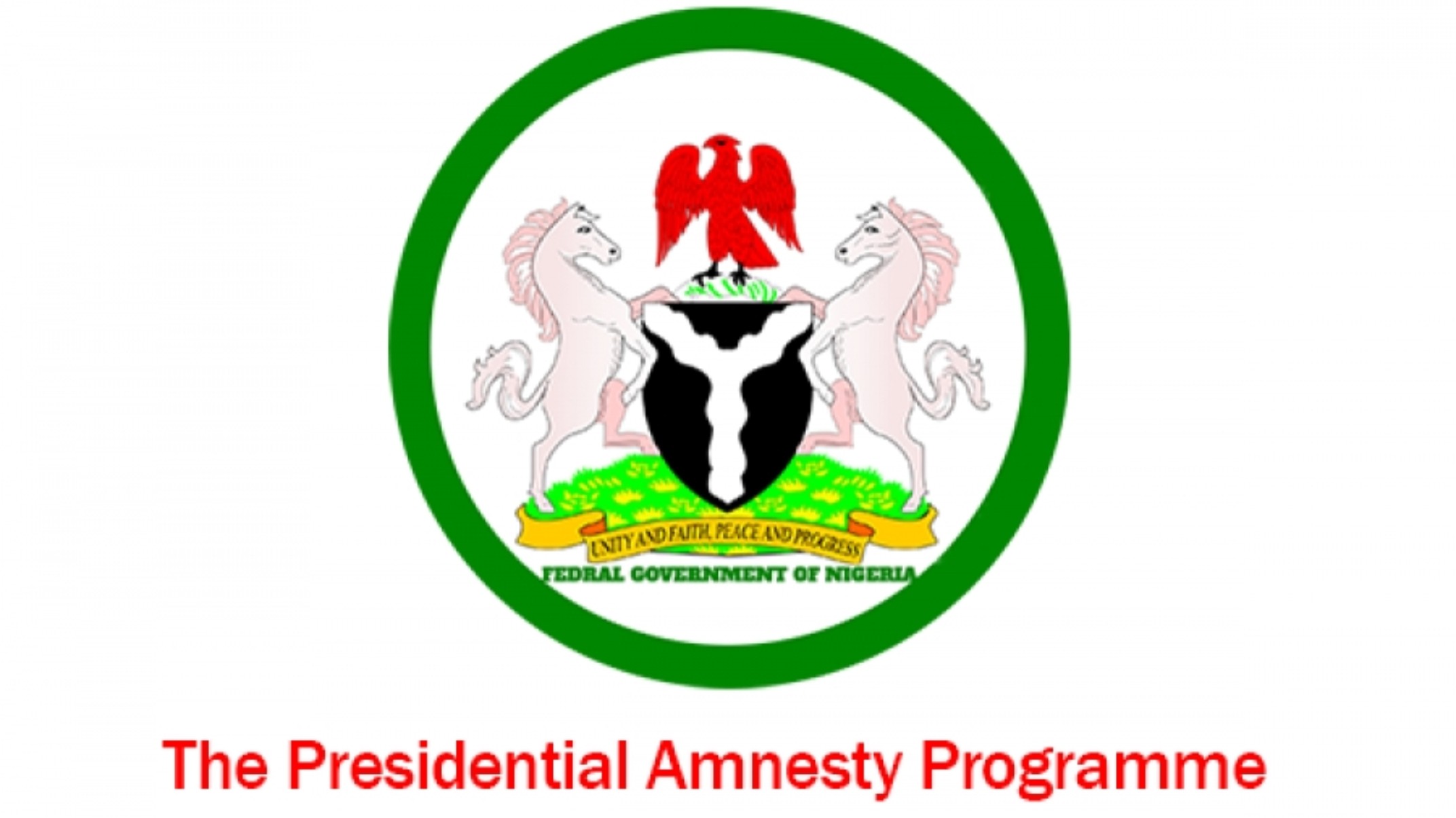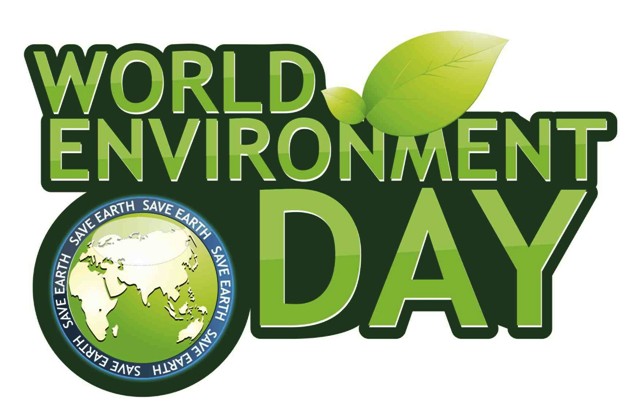Editorial
Against Repentant Insurgents’ Bill

In what looks like a poor imitation of the Amnesty Programme in the Niger Delta, a bill seeking to establish an agency for rehabilitation of repentant Boko Haram members is about to be passed into law by the Senate.
But unlike the Amnesty Programme in the Niger Delta where the ex-agitators were known and reasons for their agitation were well spelt out, the Boko Haram insurgents are terrorists who derive joy in killing innocent people without provocation and justification. The recent bill by the former Governor of Yobe State and Senator representing Yobe East, Ibrahim Geidam, cannot, therefore, be said to have met the criteria for which an Amnesty Programme in the Niger Delta was established.
Among other curious motives, the Geidam bill titled ‘Establishment of the National Agency for the Education, Rehabilitation, Deradicalisation and Integration of Repentant Insurgents in Nigeria and for Other Connected Purposes’, seeks to deradicalise repentant insurgents and equip them with requisite skills.
According to Senator Geidam, the bill “will help rehabilitate and reintegrate the defectors, repentant and forcefully conscripted members of the insurgent group, Boko Haram, to make them useful members of the society and provide an avenue for reconciliation and promote national security.
“It will also encourage other members of the group who are still engaged in the insurgency to abandon the group, especially in the face of the military pressure and enable the government to derive insider-information about the insurgency group for greater understanding of the group and its inner workings”.
The Yobe East Senator also believes that the bill “will enable government to use the defectors to fight the unrepentant insurgents”.
Details of the bill show that the proposed agency will rely majorly on funds from the Universal Basic Education Commission (UBEC), the Tertiary Education Trust Fund (TETFund), and 0.5 per cent of the allocation of the six North East States.
The Tide finds inexplicable the rationale behind the idea of creating an agency to rehabilitate veritable savages when the victims of their bestialities are languishing in internally displaced persons’ (IDPs) camps.
There is no gainsaying the fact that for the eleventh year running, the Boko Haram terrorist group has remained a raging inferno that costs the country so much in human and material terms. Worst is the apparent helplessness of the Federal Government to contain the monster. The government’s assurance that Boko Haram would soon be history has become trite. The more the government promises to decimate the terrorist group, the more vicious it becomes.
But is the rehabilitation of the lunatic group the solution to insurgency in the country? The answer is No. It is against this backdrop that we frown at the reported release of 1,400 Boko Haram ‘’suspects’’ and a bill currently before the Senate for the establishment of a national agency to educate and rehabilitate repentant insurgents. The bill, which has already passed the first reading in the Red Chamber, is a mockery of the fight against insurgency and the unspeakable tragedy that has been wreacked on the nation by the Boko Haram sect in the last one decade.
It is appalling that members of a terrorist group who should be charged with treason and subjected to condign punishment are being treated with kid’s gloves.
For us, the idea of establishing an agency to take care of the terrorists who gleefully celebrate the decapitation of fellow humans and the casualties resulting from their bestialities is irreconcilable. The bill is curious and raises more questions than answers. Is the rehabilitation of members of the lunatic band the appropriate action to assuage the grief of widows and orphans left behind by those who died fighting against these same fanatics?
If the bill sails through, how do we get justice for so many officers and men of the Nigerian Armed Forces who, in the service to their fatherland, have paid the supreme price fighting Boko Haram? How would the government justify the humongous amount of the nation’s resources, including borrowing, that had been channelled into confronting the terrorists?
It is also unthinkable that the government will have to spend borrowed money to rehabilitate those who have immensely contributed to its financial crisis, should Geidam’s bill become law.
Again, how do we distinguish between pretenders and genuinely-repentant insurgents? What is the guarantee that many, if not most of the supposedly repentant insurgents will not find their way back to the fold of their fellow fanatics after gathering information that will enable them to wreak havoc in greater measure?
Like many other Nigerians, we fear that releasing the ‘repentant’ Boko Haram militants into civilian population could be counter-productive as there is high likelihood of hardened fighters returning to the terror group to commit more atrocities, just as there is the likelihood that the bill, if passed, will breed more insurgents.
The bill is, therefore, not only needless, but also a misplaced priority. This is even so that the nationality of the insurgents may be difficult to ascertain.
We also doubt if the Boko Haram elements who kill for no cause or justification can be rehabilitated. We advise that funds meant to rehabilitate them should be used to correct infrastructural decay in the area of roads, electricity and water supply. Better still, the funds can be used to fund the Army, the police and other security agencies as well as proper equipment to fight the insurgents.
Meanwhile, we believe that the situation in the North-East has been properly taken care of with the establishment of the North East Development Commission (NEDC). That commission should be well-funded and well-equipped to tackle all the socio-economic malaise which breed insurgents in that geo-political zone.
It will amount to a waste of resources to channel resources that are supposed to be used to bring an end to terrorism and the orgy of violence into setting up an agency in the name of rehabilitating a terrorist group that does not care a hoot about human lives.
We believe that the country is currently at war with insurgents, and the war must be fought to its logical conclusion. Deradicalisation can only come after the terrorist group has been defeated. Therefore, Geidam’s bill at this moment when the war is on amounts to putting the cart before the horse.
The bill, if passed into law, will not only offend the sensibilities of all the victims of Boko Haram’s insanity, it will also be an indication of appeasement if not outright capitulation. If this happens, both the sponsor and the Senate that passed the bill into law will be as quilty as the Boko Haram lunatics that have made the country a theatre of needless war for the past 11 years. Nigerians are watching.
Editorial
Responding To Herders’ Threat In Rivers

Editorial
Democracy Day: So Far…

Nigeria’s return to democratic rule in 1999 marked a watershed moment in the nation’s political history. After enduring nearly 16 years of successive military dictatorships, Nigerians embraced a new era of civil governance with the inauguration of President Olusegun Obasanjo on May 29, 1999. Since then, the country has sustained a democratic system for 26 years. But, this democratic journey has been a complex mix of progress and persistent challenges.
The formal recognition of June 12 as Democracy Day in 2018 by former President Muhammadu Buhari acknowledged a long-standing injustice. The annulment of the 1993 presidential election, Nigeria’s freest, betrayed the democratic aspirations of millions. That it took decades to honour this date reflects the nation’s complex relationship with its democratic memory.
One of the most momentous successes of Nigeria’s democracy has been the uninterrupted civilian rule over the last two and a half decades. The country has witnessed seven general elections, with power transferring peacefully among different political parties. This is particularly notable considering that prior to 1999, no civilian government had completed a full term without military intervention. The peaceful transitions in 2007, 2015, and 2023 are testaments to Nigeria’s evolving democratic maturity.
Electoral participation, while uneven, has also reflected a level of democratic engagement. In 2003, voter turnout stood at about 69 per cent, but this figure dropped to approximately 34.75 per cent in 2023, according to the Independent National Electoral Commission (INEC). Although the declining turnout raises concerns, it also highlights the increasing expectations of the electorate, who demand credible and transparent elections.
Another area of progress is the growth of a vibrant and free press. Nigerian media has played a crucial role in holding governments accountable and fostering public discourse. Investigative journalism and civil society activism have exposed corruption and human rights abuses. The rise of social media has further expanded the democratic space, enabling young Nigerians to mobilise and advocate for change, as evidenced by the 2020 #EndSARS protests.
Judicial independence has seen mixed results. On one hand, the judiciary has occasionally demonstrated resilience, such as in landmark rulings that overturned fraudulent elections or curtailed executive excesses. On the other hand, allegations of political interference and corruption within the judiciary persist, undermining public confidence in the legal system’s impartiality.
Nigeria’s democracy has also facilitated the decentralisation of power through the federal system. State governments now wield some autonomy, allowing for experimentation in governance and service delivery. While this has led to innovative policies in some states, it has also entrenched patronage networks and uneven development across the federation.
Despite these successes, Nigeria’s democratic journey faces formidable problems. Electoral integrity remains a critical concern. Reports from election observers, including those from the European Union and ECOWAS, frequently highlight issues such as vote-buying, ballot box snatching, and violence. The introduction of the Bimodal Voter Accreditation System (BVAS) and electronic transmission of results in 2023 elections showed promise, but technical glitches and alleged manipulations dampened public trust.
Corruption continues to be a pervasive issue. Nigeria ranks 145th out of 180 countries on Transparency International’s 2023 Corruption Perceptions Index, with a score of 25/100. Democratic institutions meant to check graft—such as anti-corruption agencies and the legislature—often struggle due to political interference and weak enforcement mechanisms.
Security challenges have also strained Nigeria’s democracy. Insurgency in the North East, banditry in the North West, separatist agitations in the South East, and herder-farmer conflicts across the Middle Belt have collectively resulted in thousands of deaths and displacements. According to the Global Terrorism Index 2024, Nigeria ranks as the eighth most impacted country by terrorism. The government’s difficulty in ensuring safety erodes public confidence in the state’s capacity and legitimacy.
The economy poses another critical remonstrance. Nigeria’s Gross Domestic Product (GDP) per capita stands at approximately $2,400 as of 2024, with over 40 per cent of the population living below the national poverty line. High unemployment and inflation have fueled discontent and disillusionment with democratic governance, especially among youth. Without addressing economic grievances, the democratic dividend will remain elusive for many Nigerians.
Ethnic and religious divisions further complicate Nigeria’s democratic consolidation. Politicians often exploit identity politics for electoral gains, exacerbating social tensions. Although federal character principles aim to promote inclusiveness, they have also sometimes fostered a quota mentality rather than merit-based appointments.
Gender representation remains inadequate in Nigeria’s democratic institutions. Women occupy less than 10 per cent of seats in the National Assembly, one of the lowest rates globally. Efforts to pass gender parity bills have faced stiff resistance, highlighting deep-seated cultural and institutional barriers to female political participation.
Civil liberties, while constitutionally guaranteed, are under threat. Crackdowns on protesters, restrictions on press freedom, and surveillance of activists reveal an authoritarian streak within the democratic framework. The controversial Twitter ban in 2021 exemplified the country’s willingness to curb digital freedoms, prompting domestic and international criticism.
The political crisis in Rivers State embodies broader democratic struggles. Attempts to control the state through undemocratic means expose weaknesses in federal institutions and the rule of law. Immediate restoration of democratic governance in Rivers State is vital to preserving Nigeria’s democratic integrity and institutional credibility.
Local governments remain under the control of state governors, depriving citizens of grassroots democracy. Last year’s Supreme Court judgment on local government autonomy is promising, but state-level resistance threatens its implementation. Genuine autonomy would bring governance closer to the people and foster democratic innovation.
As we mark Democracy Day, we must honour the sacrifices of Chief M.K.O. Abiola, Kudirat Abiola, Femi Falana, Chief Gani Fawehinmi, Pa Alfred Rewane, President Bola Tinubu, and countless others, who fought for Nigeria’s freedom. As democracy in Nigeria continues to evolve after 26 years, this day should inspire action toward its renewal. With despotism and state failure as real threats, both citizens and leaders must take responsibility—citizens by demanding more, and leaders by delivering. Excuses are no longer acceptable.
Editorial
Nigeria’s Plastic Pollution Emergency

Yesterday, Nigeria joined the rest of the world to mark 2025 World Environment Day. The occasion serves as a stark reminder that our battle against plastic pollution requires more than symbolic gestures—it demands sustained, coordinated action from all levels of government. As communities worldwide grapple with mounting environmental challenges, Nigeria’s approach to plastic waste management stands at a critical juncture.
Dr. Ibinabo Ogolo, a Research Fellow at the Institute of Geosciences and Environmental Management at Rivers State University, has issued a timely call for comprehensive enlightenment campaigns targeting indiscriminate plastic waste disposal. Her message resonates with the urgency that characterises this year’s global theme: “Beat Plastic Pollution.”
The core challenge lies not in policy formulation but in implementation. Years of environmental initiatives have fallen short primarily due to inadequate public education and awareness campaigns. Citizens cannot be expected to adopt responsible waste disposal practices without understanding the gravity of their actions or knowing the proper alternatives.
Government platforms at federal, state, and local levels possess the infrastructure necessary to reach every corner of our society. Television, radio, social media, community meetings, and educational institutions provide ready channels for sustained messaging. The tools exist; what remains is the political will to deploy them effectively and consistently.
This year’s World Environment Day theme underscores the global recognition of plastic pollution’s devastating impact on ecosystems, wildlife, and human health. The message is clear: plastic waste represents one of the most pressing environmental challenges of our time, requiring immediate and sustained attention from policymakers and citizens alike.
The health implications of plastic pollution extend far beyond environmental aesthetics. Industrial and medical plastic wastes often contain toxic chemicals with carcinogenic properties, posing direct threats to human health. These materials don’t simply disappear when improperly disposed of-they infiltrate our environment, contaminating soil, water sources, and food chains.
Plastic additives released into the environment create a cascade of contamination that affects entire ecosystems. Wildlife suffers through ingestion, entanglement, and habitat destruction, while humans face exposure through contaminated water, food, and air. The interconnected nature of these impacts demands a comprehensive response that addresses both immediate disposal practices and long-term prevention strategies.
The link between plastic pollution and serious health conditions, including breast, ovarian, liver, and lung cancers, as well as various hormonal disorders, underscores the urgency of public education campaigns. Citizens have the right to understand how their daily choices affect not only environmental health but their own well-being and that of their families.
Despite scientific awareness of ocean plastic pollution dating back approximately 50 years, Nigeria’s rivers, creeks, and waterways continue to suffer from plastic waste invasion. This represents a failure of sustained commitment rather than a lack of knowledge about the problem’s existence and solutions.
The ritualistic approach to World Environment Day celebrations must end. Annual speeches and symbolic cleanups, while valuable, cannot substitute for year-round, systematic efforts to change behaviour and protect our environment. Governments must develop comprehensive frameworks that extend beyond June 5th commemorations.
Sustained enlightenment campaigns require dedicated funding, clear messaging, measurable objectives, and regular evaluation. Success depends on consistency, creativity, and community engagement that transforms environmental protection from a government mandate into a shared cultural value.
The path forward demands that all stakeholders-government officials, community leaders, educators, and citizens-recognize their roles in combating plastic pollution. Only through sustained, coordinated efforts can we hope to achieve the behavioural changes necessary to protect our environment and secure a healthier future for generations to come.
-
Rivers1 day ago
Andoni Charges Students to Prioritize Studies, Dev
-
Niger Delta1 day ago
C’River Commences Inquiry Into NDDC’s Project Inauguration Disruption
-

 Entertainment1 day ago
Entertainment1 day agoPMAN Set To Implement Performance Levy ‘Tomorrow
-
Politics1 day ago
Gowon Explains Why Aburi Accord Failed
-
Sports1 day ago
Makinde Fulfills Land Promise To Shooting Stars Players
-
News1 day ago
U.S. Envoy Warns Hezbollah Against Entering Israel-Iran Conflict
-
Politics1 day ago
LG Elections Beneficiaries Remain Sacked — OSIEC
-
Niger Delta1 day ago
Diri To Deliver UNIPORT’s 35th Convocation Lecture July 25th … As UNIPORT’s Mgt Visits Bayelsa

